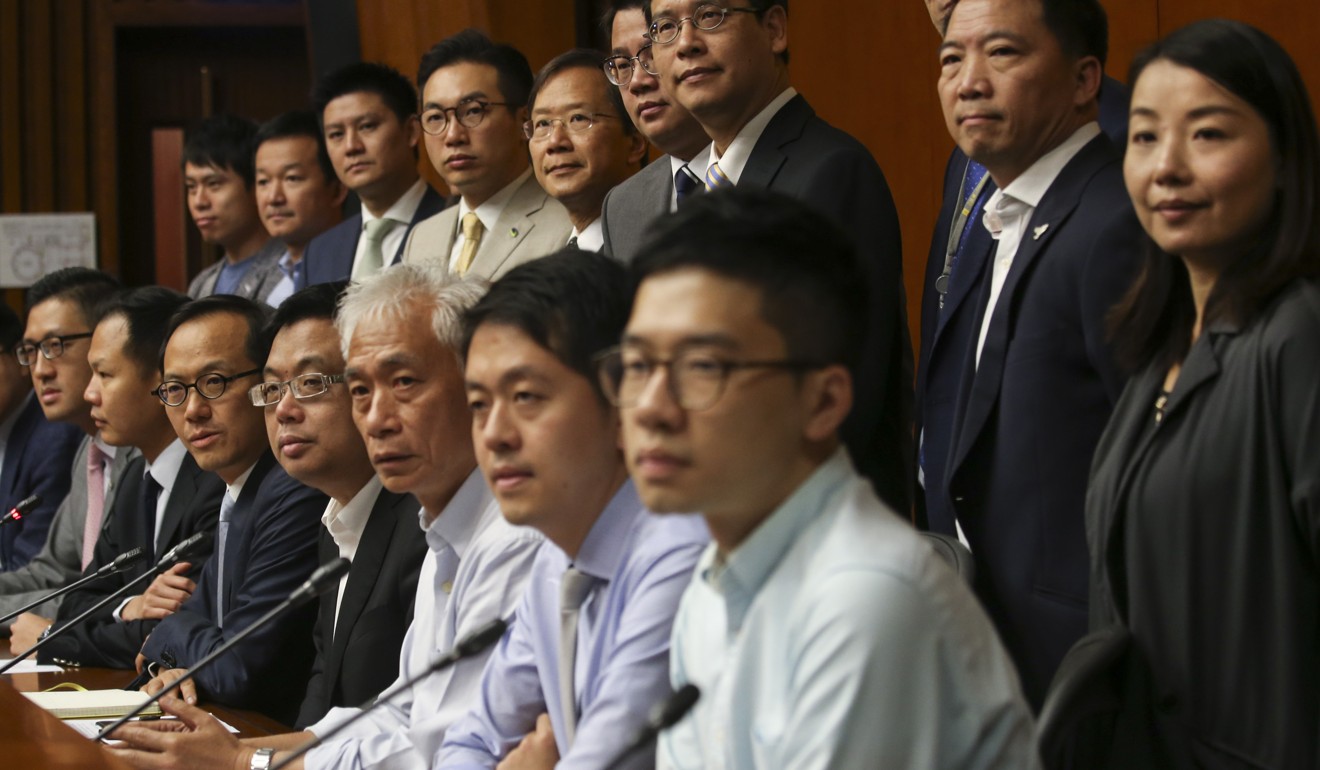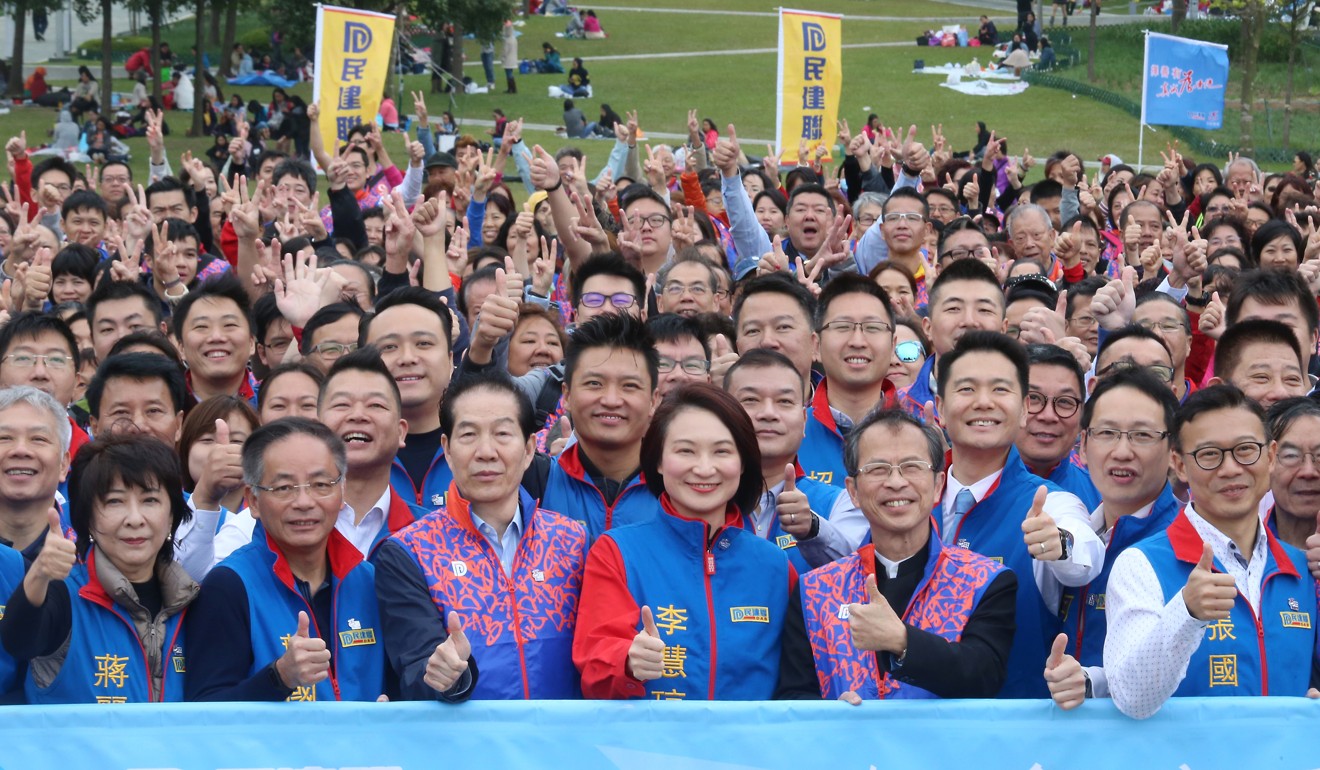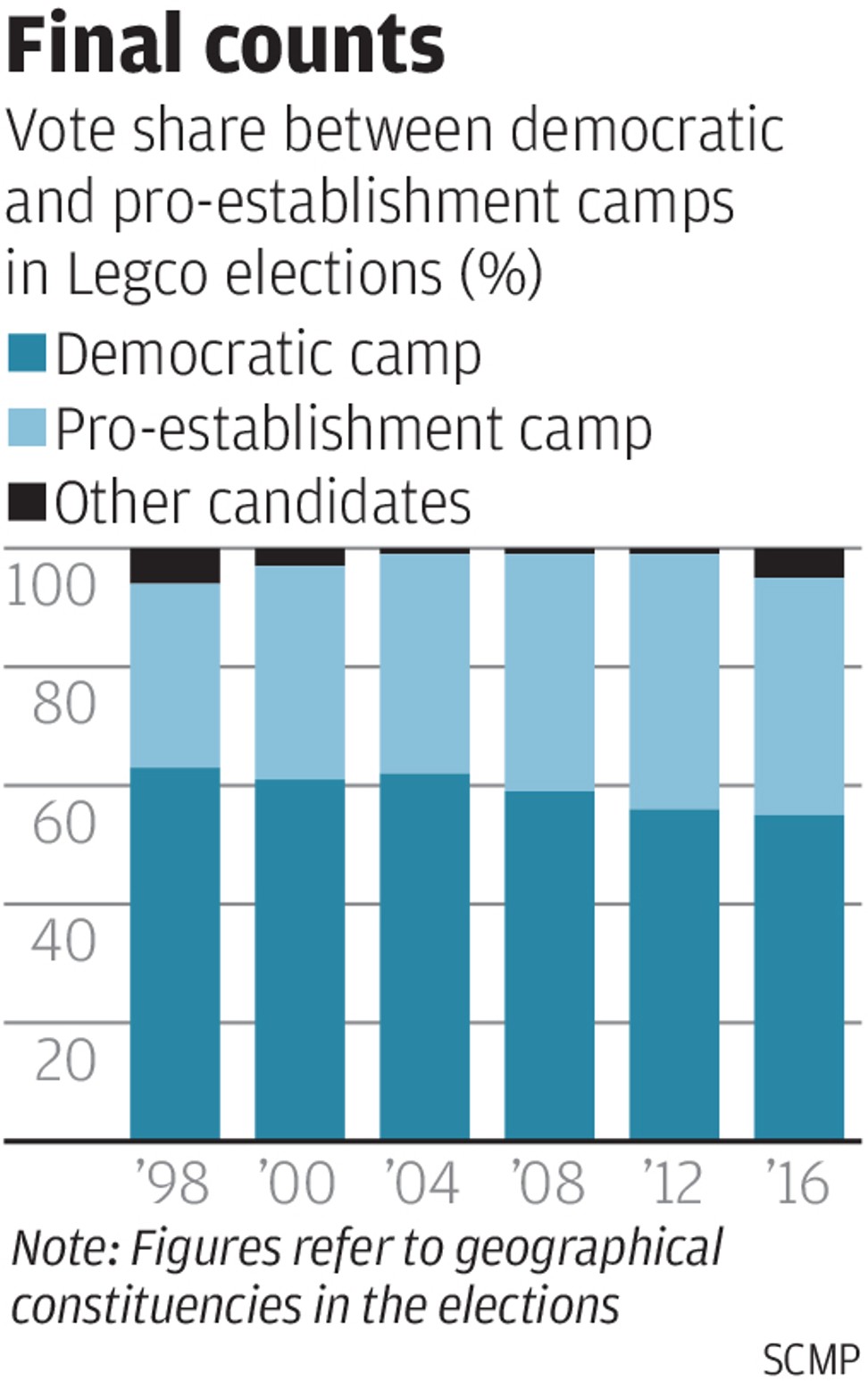
Pan-democrat voter share slips in Hong Kong elections since 1997
Traditional 60-40 vote division in Legislative Council polls changes as pro-establishment camp mobilises electors and moderate groups emerge
Hong Kong’s pan-democrat groups have suffered a gradual slide in their vote share since the 1997 handover as the pro-establishment camp enlarged its base, a Post study of election data has found.
The so-called “60-40” proportion identified by political scientists for vote shares between the two camps remained stable in the four Legislative Council elections held after 1997, but the balance shifted in the second decade.
The Legislative Council’s 70 seats are split equally between functional and geographical constituencies. It is vital for the democratic camp to secure a majority in the latter seats to have the power to block government initiatives like the electoral reform package of 2015.
An analyst attributed the slide to factors such as stronger mobilisation of voters by the Beijing-friendly camp, the emergence of new, less “left-leaning” parties from that bloc with wider appeal, and, more contentiously, a new vote bank made up of new immigrants from the mainland.
In the 1998 election, the pan-democratic camp bagged 63 per cent of total valid votes cast, while the pro-establishment sector won 31 per cent and independents 6 per cent. Pan-democrats seized 14 out of the 20 seats in the geographical constituencies.
The localists are grouped in the pan-democratic camp as they share the goal of securing universal suffrage for the election of the chief executive and the legislature without prior vetting. Only those without a clear stance on the issue are classified as “others”.
The pro-establishment camp’s gradual upswing in votes went from 31 per cent in 1998 to last year’s 40.2 per cent. Notably too, last year, a group of self-proclaimed moderates, seen as being closer to the pro-establishment camp in their political stance, bagged another 5 per cent.

Ivan Choy Chi-keung, a political scientist at Chinese University, said the emergence of moderate candidates was a reason for the change in the balance.
“These moderates, unlike the traditional leftist candidates from the Democratic Alliance for the Betterment and Progress of Hong Kong (DAB) and Federation of Trade Unions (FTU), are usually professionals with more appeal to the middle class and they may have taken away supporters from the democratic camp,” the academic said.
These moderates are usually professionals and they may have taken away supporters from the democratic camp
Choy pointed to examples such as lawyers Paul Tse Wai-chun, Priscilla Leung Mei-fun and Eunice Yung Hoi-yan, former security minister Regina Ip Lau Suk-yee and Michael Tien Puk-sun.
Other factors could be the stronger mobilising ability of the leftist bloc and new immigrants from the mainland, Choy said.
The DAB and FTU are known to have more resources to develop extensive links with community groups, which are able to canvas for votes for their candidates.
But whether new immigrants are staunch supporters of the pro-Beijing camp is subject to debate. A study by City, Chinese and Baptist universities in 2014 found that while some new arrivals did tend to prefer the DAB and FTU, the majority had no knowledge of any party. It also found that the longer they lived in Hong Kong, the likelier they were to hold mainstream political views.
Lee Wing-tat, a former lawmaker in charge of the Democratic Party’s election strategy,was “not optimistic” that the camp could reclaim its vote share.

The pan-democrats did well in 2004, a year after the administration’s plan to legislate a national security law sparked 500,000 people to take to the streets, he said.
DAB veteran and former legislator Ip Kwok-him said his camp did better in elections after the handover because of better relations with the administration.
“The colonial government never listened to our demands, but after the handover, our policy proposals were often adopted,” Ip said. “People think we are able to do real business and vote for us.”


